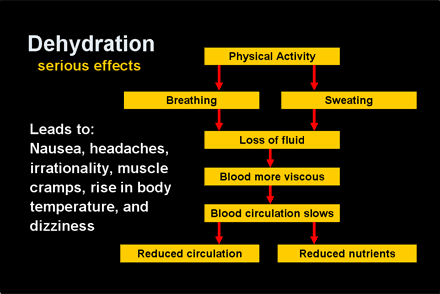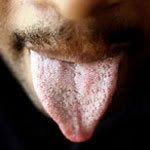I'm sure everyone knows that your body is made up of approximately 2/3rds of water but what makes hydrating so important is because our body needs the nutrients in it to keep functioning. When your body sweats, obviously you lose water so that your body can stay cool. The reason why hydrating when we are cold is so important is because our body does feel cool and therefore we don't drink as much water as we would when we are warm or outside working in the heat.
We are told to drink 8-10 glasses of water per day which to some people seems insane and I know that when I was first told that I thought my health teacher was insane, but it keeps our body moving and our brain going.
Now, if you are at home, work, or other such controlled environment, it's easy for you to keep track of how much water you are drinking but if you are out camping or somewhere less controlled, there is one thing you can do to make sure that your body is properly hydrated and ready to go.
Take notice the color of your urine when it comes time for you to urinate.
Clear to light yellow urine indicates proper hydration.

The darker the urine color, the greater the dehydration level.
Stages of Dehydration:

If your tongue looks like this:

You are probably on your way to dehydration. Although you cannot see your own tongue, in a lot of cases unless you are gene Simmons, have your friend look at it for you if you aren't feeling up to par.
Signs and Symptoms
Mild to moderate dehydration is likely to cause:
* Dry, sticky mouth
* Sleepiness or tiredness — children are likely to be less active than usual
* Thirst
* Decreased urine output — fewer than six wet diapers a day for infants and eight hours or more without urination for older children and teens
* Few or no tears when crying
* Muscle weakness
* Headache
* Dizziness or lightheadedness
Severe dehydration, a medical emergency, can cause:
* Extreme thirst
* Extreme fussiness or sleepiness in infants and children; irritability and confusion in adults
* Very dry mouth, skin and mucous membranes
* Lack of sweating
* Little or no urination — any urine that is produced will be dark yellow or amber
* Sunken eyes
* Shriveled and dry skin that lacks elasticity and doesn't "bounce back" when pinched into a fold
* In infants, sunken fontanels — the soft spots on the top of a baby's head
* Low blood pressure
* Rapid heartbeat
* Fever
* In the most serious cases, delirium or unconsciousness
* Kidney Stones
Other Ways To Prevent Dehydration (As taken from here):
*Acclimate to the heat over a period of 10 -14 days by beginning to exercise during the hot parts of the day for 10 -20 minutes and gradually increase your exercise time working up to 1 – 2 hours.
*Be sure to drink plenty of proper fluids during the acclimatization period.
*Drink fluids containing sodium to keep your urine clear to light yellow
*If you sweat a lot, or heat conditions worsen, be sure to take in extra sodium during the day with your meals and/or or rehydration beverages containing sodium.
*When exercising in the heat, cloths should be breathable and allow for proper sweating and evaporation. Clothes that get wet and hold on to the sweat need to be changed regularly.
*Alter intensity and frequency if exercising in the heat. Always make adjustments as the heat and/or humidity increase.
*Hydration breaks should be more frequent and longer as the heat and/or humidity increase.
Other Sources:
WikiPedia
Games Development
Natural Medicine
To see the original post, please visit:
TheOmegaMan.org/Forum

